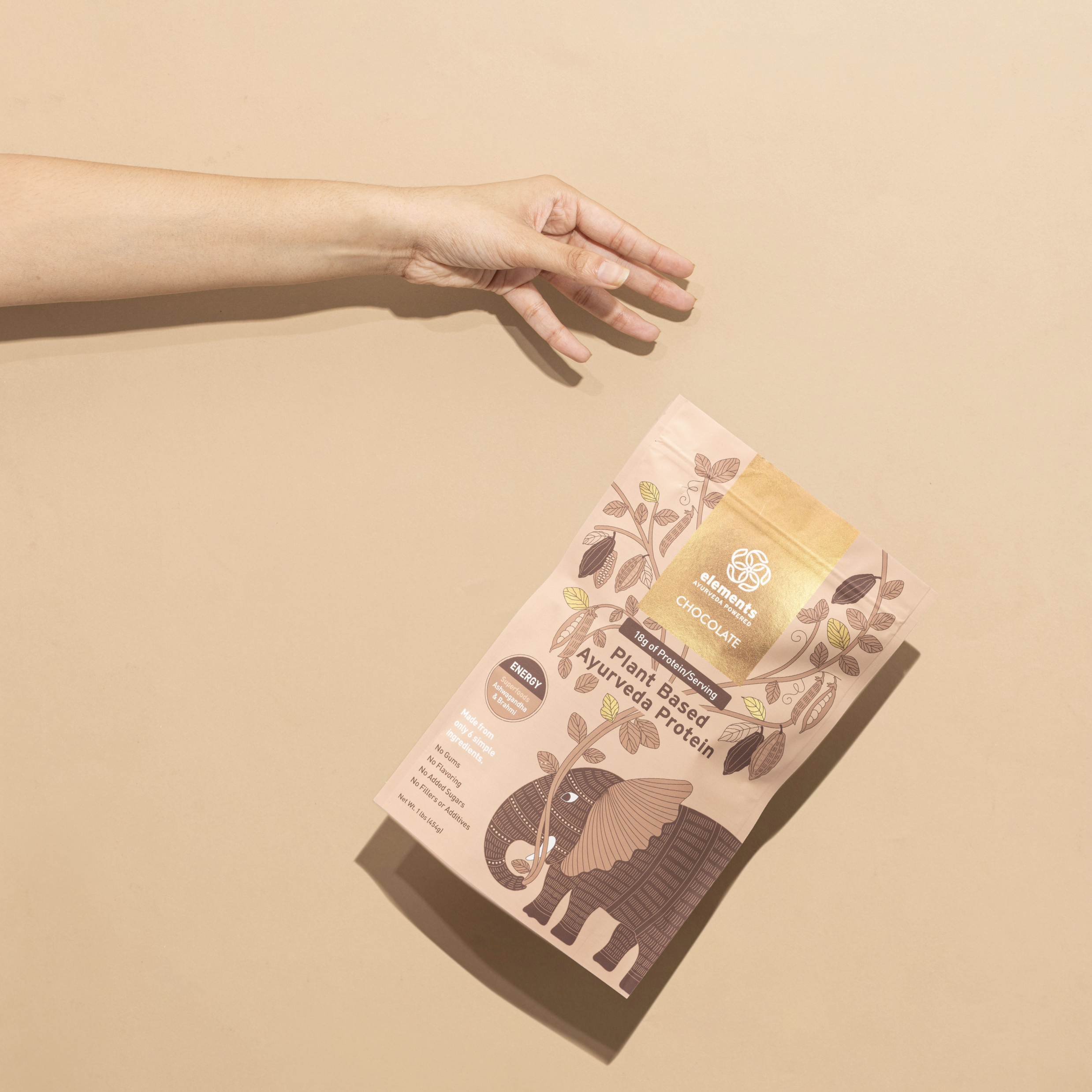
How healthy is dark chocolate? Astonishing facts, pro and cons
How healthy is dark chocolate? Astonishing facts, pro and cons
Introduction: What is Dark Chocolate?
Dark chocolate has been gaining popularity in recent years due to its unique taste and potential health benefits. But what exactly is dark chocolate, and what makes it different from other types of chocolate?

Dark chocolate is made from the beans of the cacao tree, which are roasted, ground, and then mixed with other ingredients such as cocoa butter and sweetener to create a chocolate bar. The main difference between dark chocolate and other types of chocolate, such as milk chocolate, is the percentage of cacao solids it contains. The higher the percentage of cacao solids, the darker and more bitter the chocolate will be.
In addition to its distinct taste, dark chocolate has gained a reputation for being a healthier alternative to other types of chocolate. This is due to the presence of antioxidants in cacao, as well as the potential benefits of the flavonoids and polyphenols found in dark chocolate. Many dark chocolate brands also use fair trade and organic cacao, supporting sustainable and ethical farming practices.
When choosing a dark chocolate bar, it's important to pay attention to the cacao percentage, as this can affect both the taste and potential health benefits. Look for bars with a cacao percentage of at least 70%, and try to avoid those with added sugars or unhealthy fats. A serving size of dark chocolate is typically one ounce or about 28 grams, which contains around 170 calories and 12 grams of fat.
Overall, dark chocolate can be a delicious and potentially healthy addition to your diet, but it's important to choose high-quality, minimally processed brands and consume in moderation. So go ahead and indulge in a piece of the best dark chocolate you can find, and savor the rich flavor and potential health benefits it has to offer.
Healthy Dark Chocolate: The benefits

As a dark chocolate enthusiast and a chocolate maker, I'm excited to share with you the many health benefits of this delicious treat. Contrary to popular belief, consuming dark chocolate in moderation can actually be good for your health. Chocolate gets all the bad rep, because of the sugar and added unhealthy ingredients! Let's take a closer look at how:
Antioxidants and Flavonoids
Dark chocolate is loaded with antioxidants, which help protect your cells from damage caused by free radicals. In fact, dark chocolate has been shown to contain more antioxidants per serving than many other foods, including blueberries and acai berries. These antioxidants are also have anti-inflammatory properties, which can help reduce your risk of chronic diseases such as heart disease and cancer.
Lowering Blood Pressure
Studies have shown that consuming dark chocolate can help lower blood pressure, which is a major risk factor for heart disease and stroke. The flavanols in dark chocolate have been shown to increase nitric oxide levels in the blood, which can help relax and dilate blood vessels, thereby reducing blood pressure.
Improving Heart Health
In addition to lowering blood pressure, dark chocolate may also help improve other aspects of heart health. Studies have found that consuming dark chocolate regularly can help reduce levels of "bad" cholesterol (LDL cholesterol) and increase levels of "good" cholesterol (HDL cholesterol). This can help lower your risk of developing heart disease and other cardiovascular problems.
Boosting Brain Function
Dark chocolate contains a small amount of caffeine, which can help improve mental alertness and focus. It also contains theobromine, a compound that has been shown to have mood-boosting effects. Additionally, the flavanols in dark chocolate may help improve blood flow to the brain, which can enhance cognitive function and reduce the risk of age-related mental decline.
As you can see, there are many reasons to enjoy dark chocolate in moderation as part of a healthy diet. However, it's key to look at the ingredient list. Look for high-quality healthy dark chocolate which is ethically sourced, with at least 70% cocoa content and avoid varieties that are high in added sugar or other unhealthy additives. By choosing the right type of chocolate and enjoying it in moderation, you can truly reap the many brain-boosting benefits of this delicious treat.
The Nutritional Profile of Dark Chocolate
Calories, Fat, and Sugar
Chocolate is a nutrient-dense food that can provide many benefits. However, it is also high in calories, fat, and sugar. One serving of dark chocolate (about 1 oz. or 28 grams) contains approximately 170-190 calories, 12-13 grams of fat, and 8-10 grams of sugar. While these values may seem high, they are still lower than the calorie, fat, and sugar content found in many other types of sweets.

Choosing the Right Type of Dark Chocolate
When it comes to choosing the right type of dark chocolate, it is important to look for products that contain high-quality ingredients, such as fair-trade organic cacao, adaptogens and organic clean ingredients. Reading the labels carefully is so important, as some products may contain more sugar content than cacao in addition to preservatives and artificial/natural flavors. There is nothing natural about natural flavors!

Dark chocolate bars are available in many different percentages of cacao, ranging from 50% to 100%. The higher the percentage of cacao, the lower the sugar content and the higher the antioxidant content. It is generally recommended to choose dark chocolate with a cacao content of at least 70% to maximize the nutritional benefits.
Per serving, dark chocolate is also a good source of fiber, iron, magnesium, and zinc. Raw cacao which we use in our chocolate bars is the unprocessed form of cocoa, which is even higher in antioxidants and beneficial compounds.
And while we all love those a good salty dark chocolate bar be aware of the sodium content when choosing these products. While a small amount of salt can enhance the flavor of dark chocolate, it is best to avoid products that contain excessive amounts of sodium.
In conclusion, dark chocolate can be a healthy and delicious addition to your diet when consumed in moderation. By choosing high-quality products and paying attention to the nutritional content, you can enjoy the many benefits of dark chocolate while also maintaining a balanced and healthy diet.
Risks and Drawbacks of Dark Chocolate Consumption

Caffeine and Theobromine
Dark chocolate contains naturally occurring compounds such as caffeine and theobromine, which are stimulants that can affect the nervous system.
While the levels of caffeine and theobromine in dark chocolate are relatively low compared to other sources such as coffee or tea, they can still cause negative effects in individuals who are sensitive to stimulants. These effects may include increased heart rate, restlessness, anxiety, and difficulty sleeping.
Interactions with Medications
It's important to be aware that dark chocolate can interact with certain medications. For example, the theobromine in dark chocolate may interact with medications that are metabolized by the liver, such as some antidepressants and anti-anxiety medications. This can affect the effectiveness of these medications and potentially cause adverse effects. If you are taking any medications, it's best to consult with your healthcare provider to determine if there are any potential interactions with dark chocolate.
Risk of Overconsumption
While dark chocolate can be a healthy treat in moderation, overconsumption can lead to negative health effects. Dark chocolate is still high in calories, fat, and sugar. Eating excessive amounts of dark chocolate can contribute to weight gain, increased risk of heart disease, high blood pressure, and insulin resistance.
In conclusion, while dark chocolate offers many health benefits, it's important to be aware of potential risks and drawbacks associated with its consumption. Moderation is key, and it's important to consider factors such as caffeine and theobromine content, interactions with medications, and the risk of overconsumption. As with any food, it's always best to consume dark chocolate in moderation as part of a balanced diet to ensure optimal health outcomes.
Dark Chocolate vs. Milk Chocolate bars
If you're a chocolate lover, you may be wondering about the differences between milk and dark chocolate. While both are made from cocoa beans, they differ in terms of taste, nutrition and health benefits. Let's take a closer look at what sets them apart.
Differences in Nutrition and Health Benefits
Dark chocolate is the clear winner when it comes to nutrition and health benefits. It contains a higher percentage of cocoa solids, which means it has more antioxidants, flavonoids, and minerals like iron and magnesium. These compounds provide a range of health benefits, including improving heart health, reducing inflammation, and boosting brain function.
Milk chocolate, on the other hand, contains less cocoa solids and more milk solids, which means it has a higher calorie and sugar content. It also lacks the same level of antioxidants and flavonoids as dark chocolate. In fact, many brands of milk chocolate contain added ingredients like corn syrup and saturated fats, which can increase the risk of heart disease, insulin resistance, and other health issues.
Which is Healthier?

Based on their nutritional profile and health benefits, dark chocolate is considered the healthier option. However, that doesn't mean you can't enjoy your milkier chocolate in moderation. After all, taste is a personal preference, and chocolate is meant to be enjoyed.
If you're trying to incorporate more dark chocolate into your diet, start by looking for bars that contain at least 70% cacao solids typically. This will ensure that you're getting the maximum health benefits. When it comes to milk chocolate, choose high-quality brands that use organic chocolate, vegan milk alternatives and avoid too much added sugar.
In conclusion, while dark chocolate is the clear winner in terms of nutrition and healthy benefits it doesn't mean you have to give up your love for milk chocolate entirely. Just be mindful of how much you're consuming and opt for high-quality brands whenever possible.
How to Incorporate Dark Chocolate into a Healthy Diet

If you're a chocolate lover looking for a healthier way to indulge, incorporating dark chocolate into your diet can be a great option. Here's what you need to know about portion sizes, frequency of consumption, and some recipe and snack ideas to keep things interesting.
Portion Sizes and Frequency of Consumption
While dark chocolate does offer a range of healthy benefits, it's important to keep portion sizes in mind. A standard serving of dark chocolate is around 1-1.5 ounces, or one to two small squares. It's recommended to consume dark chocolate in moderation, with a frequency of a few times a week to avoid overconsumption of calories, fat, and sugar.
Recipes and Snack Ideas

Here are some ideas for incorporating dark chocolate into your diet:
-
Chocolatey Nut Butter Energy Balls: Mix almond butter, oats, and a melted dark chocolate bar in a bowl, form into balls, and refrigerate for a healthy snack.
-
Dark Chocolate and Berry Yogurt Parfait: Layer Greek yogurt, fresh berries, and chocolate bar shavings for a healthy, protein-packed breakfast or dessert.
-
Dark Chocolate-Dipped Fruit: Melt a couple of chocolate bars and dip fresh strawberries or banana slices for a sweet and nutritious treat.
-
Dark Chocolate Trail Mix: Mix nuts, seeds, and dark chocolate chips for a satisfying and energy-boosting snack.

When choosing for your recipes, look for chocolate bars with at least 70% cacao and minimal added sugars and milk solids. You can also opt for fair trade and organic ingredients for a more sustainable and ethical choice.
In conclusion, incorporating dark chocolate into your diet can be a delicious and healthy way to satisfy your sweet tooth. Just remember to choose high-quality dark chocolate, and enjoy in moderation.
Conclusion: Is Dark Chocolate Good for You?
In conclusion, dark chocolate can be a delicious and healthy addition to your diet when consumed in moderation. Its high cocoa content provides a range of nutritional benefits, such as improving heart health, boosting brain function, and lowering blood pressure. However, it's important to choose the right type, which contains clean, organic ingredients, has low added sugar content and uses healthy sweeteners.
When it comes to portion sizes, it's recommended to consume no more than 1-2 ounces of dark chocolate per day, depending on your calorie needs. It's also important to balance it with other healthy foods, such as fruits and vegetables, and to limit your consumption of other sources of added sugars and saturated fats.
There are many ways to incorporate dark chocolate into a healthy diet. You can enjoy it on its own as a snack or use it in recipes, such as dark chocolate oatmeal cookies or a chocolate banana smoothie. Just be sure to use high-quality dark chocolate and stick to the recommended portion sizes.
In contrast to dark chocolate, milk and white chocolate contain less cocoa and more added sugars and milk solids. While they may be tasty treats, they don't offer the same nutritional benefits as dark chocolate. And if often accompanied by the guilt of having indulged. It's important to keep in mind that the typical American diet is already high in added sugars and saturated fats, so it's best to limit your consumption of these types of chocolate.
Overall, the key to enjoying chocolate is to choose the best quality, consume it in moderation, and balance it with other healthy foods. By doing so, you can indulge in a sweet treat while reaping the numerous nutritional benefits that dark chocolate has to offer.

FAQ
What is fair trade chocolate?
Fair trade chocolate is chocolate that has been produced under fair labor conditions, where workers are paid fairly and work in safe and healthy environments.
What is unsweetened chocolate?
Unsweetened chocolate is pure chocolate without any added sugar or sweeteners, and is often used in baking and cooking.
Is eating chocolate ok for pregnant women?
Eating dark chocolate in moderation is generally safe for pregnant women, but it is important to check with a doctor and consume it in small amounts due to its caffeine content.
How much dark chocolate can kids eat?
A small amount of a dark chocolate healthy treat is ok for kids, but it is important to monitor their intake and not exceed more than 1-2 small squares or pieces per day.
Which is the best dark chocolate?
We love all the dark chocolates by Elements Truffles. We might be a little biased here.






